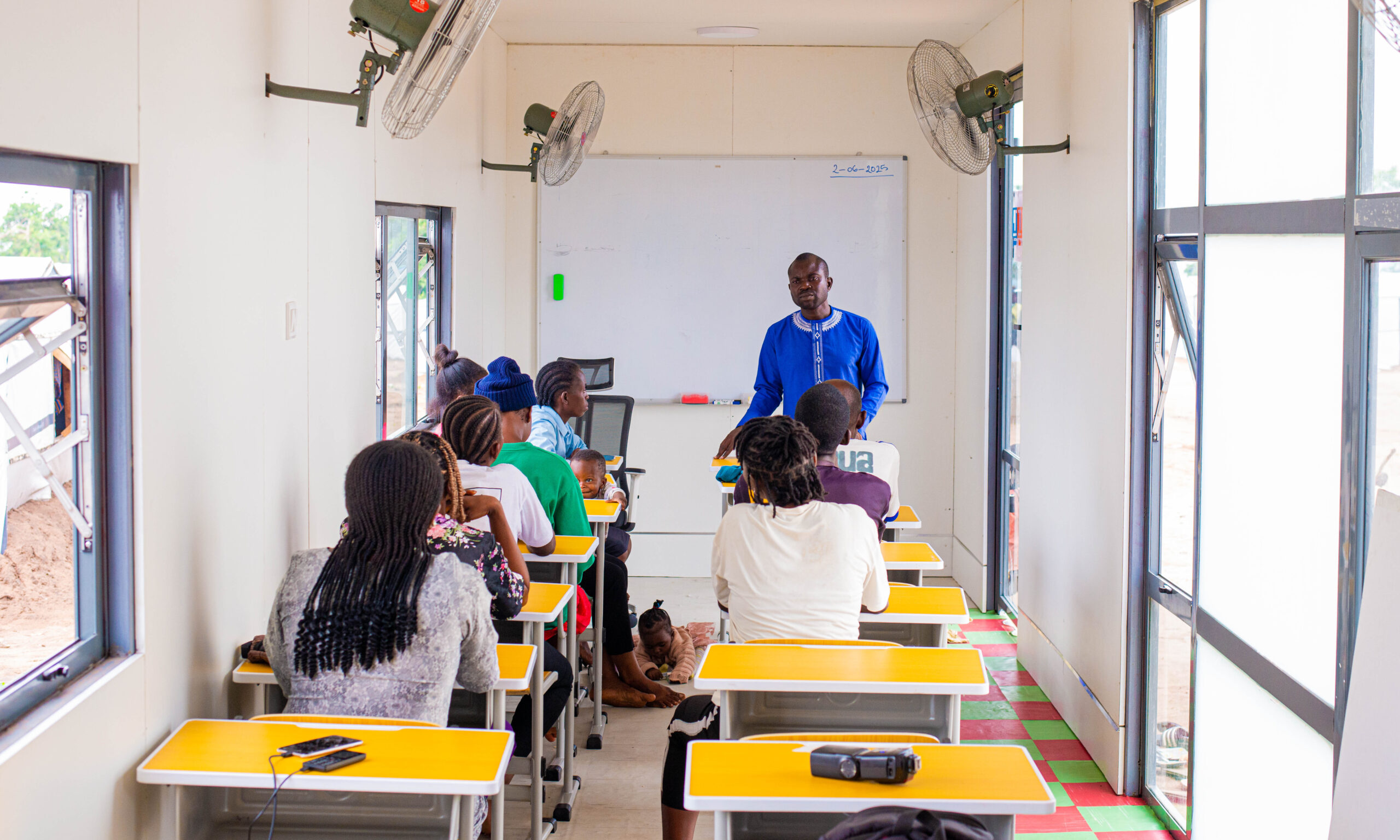In a remarkable initiative born of empathy and ingenuity, Emeka Obiwulu, chief executive of The Offshore Lab, has taken a bold step to rekindle learning among some of Nigeria’s most vulnerable children. He envisioned and deployed what are now known as “SchoolBox” units: once ordinary steel shipping containers, now transformed into secure, solar-powered classrooms. These modular units come equipped with desks, whiteboards, ventilation, digital learning tablets, and even WASH (water, sanitation, and hygiene) facilities
The origins of SchoolBox trace back to 2024, when Obiwulu visited an IDP camp near the Alau Dam in Borno State. There, he encountered hundreds of displaced children with no access to education, no books, no classrooms, nothing but despair. It was this scene that ignited the ambition to design a mobile, dignified learning solution
Just months later, the first prototyped container school was erected, and by May 2025, the initial batch of SchoolBoxes was unveiled at an IDP site in Benue State. Since then, ten units have been commissioned and are in production, earmarked for deployment across the South‑South, Northwest, and Northeast regions
Inside these compact classrooms, the atmosphere is transformative. They accommodate up to 30 learners and function as bright beacons of hope. One shy but determined eight-year-old, Simi, displaced from Katsina after a bandit attack, now clutches her writing slate with pride, declaring her dream to become a teacher
Obiwulu is emphatic in his mission: “We’re not trying to build permanent schools in impermanent spaces, we are building durable education for fragile contexts.” Every unit is formally linked to a nearby government primary school and aligned with national curriculum standards, thanks to partnerships with State Ministries of Education
Looking ahead, The Offshore Lab plans to scale the initiative to an ambitious 10,000 SchoolBoxes by 2030, bringing schooling to children in conflict zones, flood-prone areas, riverine and desert communities where traditional schooling has failed to reach
This innovative project is part of a broader movement in Nigeria: a push to bridge gaps in education with context-sensitive solutions, from solar-powered learning hubs to community radio programs and offline edtech tools. The underlying message is clear: education must adapt to the realities of distressed environments, not wait for conditions to be perfect

